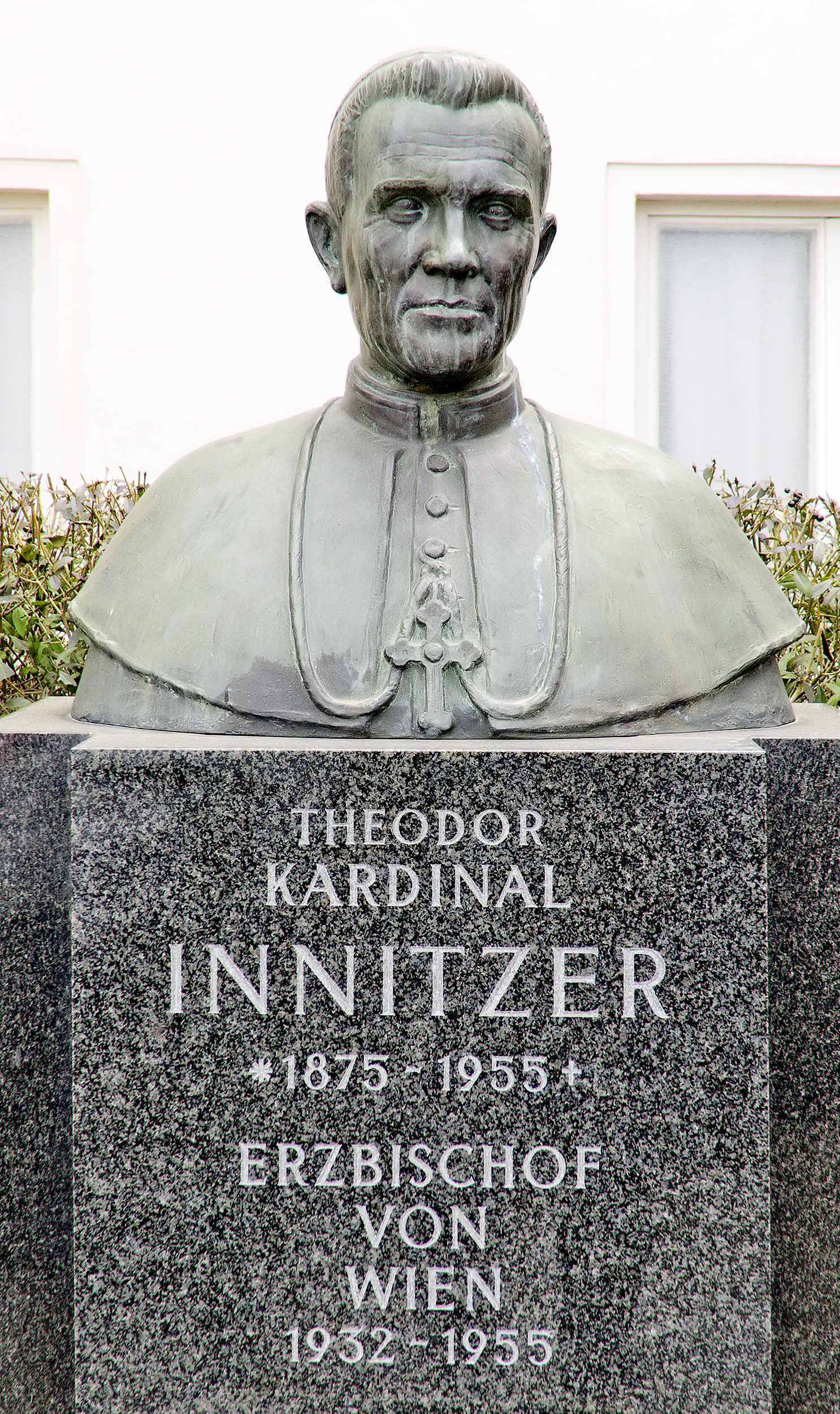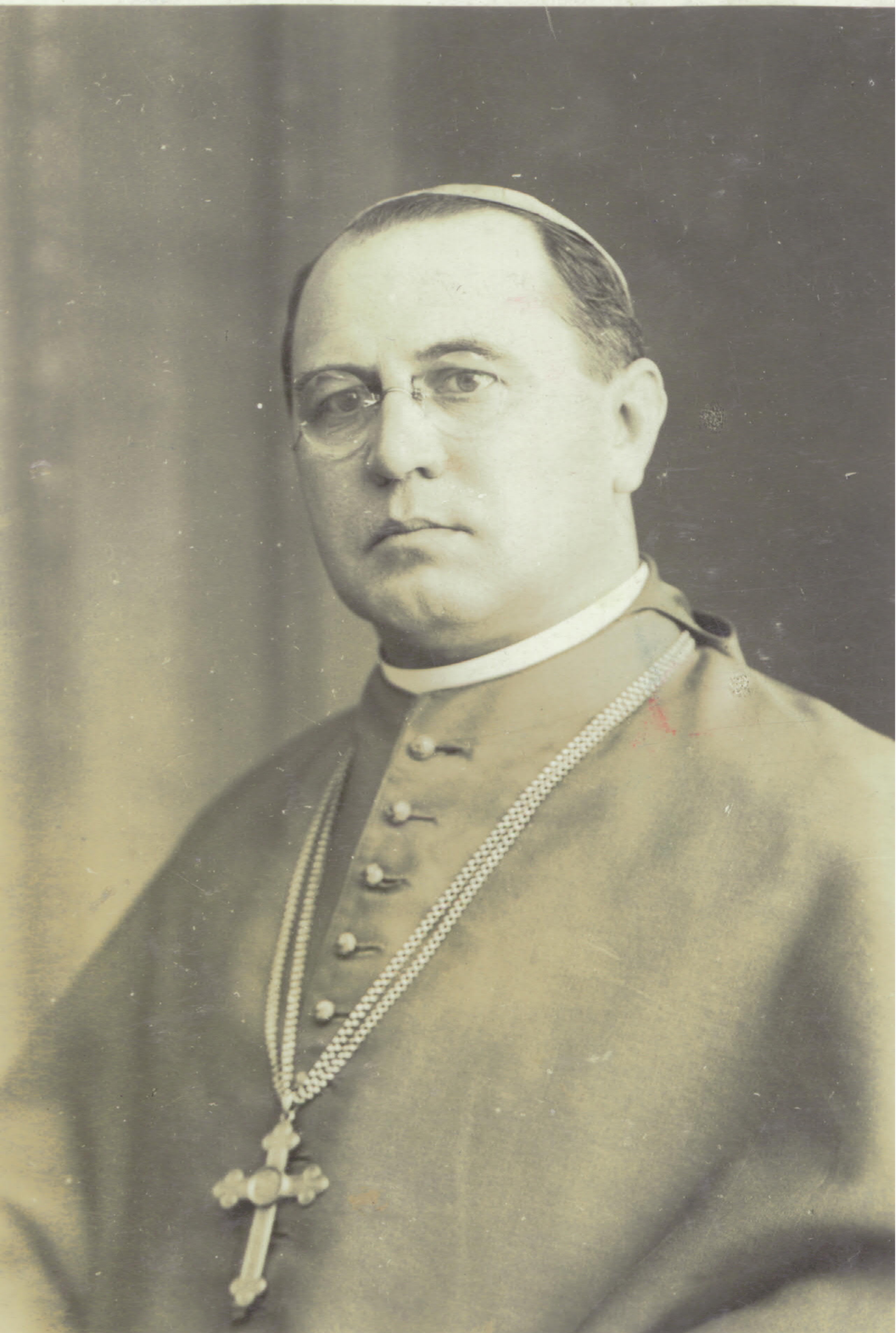TO THE CATHOLICS OF AUSTRIA Pastoral Letter of the Bishops of Austria, read in all
Churches, October 14, 1945.
CATHOLICS OF AUSTRIA
Assembled for the first time after the war, the Austrian Bishops regard it as their duty to cast a look at the past, face the future, and direct a Pastoral word to the faithful.
I. RETROSPECT
A war which has raged terribly and horribly, like none other in the past epochs of the History of humanity, is at an end. In sorrow and gratitude we remember the hundred thousands who at the front and at home have fallen as victims of war. At an end also is an intellectual battle, the goal of which was the destruction of Christianity and church among our people; a campaign of lies and treachery against truth and love, against divine and human
1067
3274-PS
rights, and against international law. The church cannot be made responsible for this war of destruction; rather did it seek to avert this threatening evil, believing as it did, the promises which were made to it. But these promises and assurances were not only violated, but the church was systematically robbed of rights conferred on it by God Himself and was obstructed in its mission.
In accordance with the Scripture (Zacharias 13:7, Matthew 26:31): "Strike the shepherd and then the .sheep will be dispersed", hatred was primarily directed against priests and members of religious orders. Volumes would, have to be filled to describe what was done in recent years to priests and members of orders under various pretexts in personal intercourse with them as well as in public, in newspapers and before courts, in prison cells and in concentration camps. Did they not attempt to force the statement from a priest in a responsible position of an Austrian diocese, under repeated cruel blows, that the Pope and the Austrian bishops had demanded betrayal of German military secrets!
Direct hostility to the church was revealed in regulations against orders and monasteries, Catholic schools and institutions, against religious foundations and activities, against the buildings of ecclesiastical houses and institutions; without the least right to defend themselves they were declared enemies of both people and state and their existence destroyed.
Religious instruction and education of children and youth were purposely limited, frequently entirely prevented. They encouraged in every manner all efforts hostile to religion and the church and thus sought to rob the children and youth of our people of the most valuable treasure of holy faith and of true morality born of the Spirit of God. Unfortunately the attempt succeeded in innumerable cases to the permanent damage of young people.
Spiritual care of souls in churches and ecclesiastical houses, in hospitals and other institutions was seriously obstructed; it was made ineffectual in the Armed Forces and in the Labor Service, in the sending of youths to the country and beyond that even in individual families and among numerous persons, to say nothing of the prohibition of spiritual ministration to people of another nationality and of other races.
How often was the Divine Service as such, also sermons, folk missions, communion days, retreats, processions, pilgrimages limited, for the most impossible reasons, and made entirely impossible.
Catholic literature, newspapers, periodicals, church papers, religious writings were stopped, books and libraries destroyed.
3274-PS
What an injustice occurred in the dissolution of many Catholic societies and the destruction of numerous church activities!
Individual Catholic and Christian believers whose religious confession was allegedly free, were spied upon, criticized on account of their belief,, scorned on account of their Christian activity. How many loyal officials, teachers, public and private employees, laborers, business men and artisans, indeed even peasants were put under pressure and terror! Many lost their jobs, some were pensioned off, others dismissed without pension, demoted, deprived of their real professional activity. Often enough, such people who remained loyal to their convictions, were discriminated against, condemned to hunger or tortured in concentration camps. Christianity and the church were continually scorned and exposed to hatred.
The apostasy movement found every assistance. Every opportunity was used to induce many to withdraw from the church.
All in all the fight against God, religion and the church revealed itself more and more. No organization in these years was obliged to undergo more sacrifice in its possessions, in its freedom and health, in blood and life itself than the Church of Christ.
When today we recall to memory these grievous events, we do it in reverence first of all for the poor victims of the hatred shown and in gratitude for the unswerving loyalty of thousands. Many died heroically as martyrs; many deserve the honorable title "confessor" which the ancient church conferred on all those who suffered because of their faith, with horror we reject these ideas and deeds hostile both to God and Christ. But we also know that not only the entire German people and even less, the Austrians in their totality, cannot be made responsible for these things. We know that many became adherents of this system hostile to God and the church and succumbed only out of compulsion and pressure. They were blinded by propaganda and therefore in the spirit of strict justice must not be treated or punished on an equality with the ring-leaders, with the obstinate believers and influential advocates of their ideas.
The results of these long years of hostile efforts against God, against religion and the church have not failed to make themselves felt. Human pride, borne out with repulsive boastfulness and full of Satanic hatred gave rise to numerous, ever-increasing injustices, accusations and murders, just as it caused the war itself with such accompanying happenings as never before were heard of in the history of the human race. Appalling has been
1069
3274-PS
the great suffering, misery, poverty and cruel mortality which because of all that was inflicted not only on our own people but on the peoples of many other countries as well.
II. FACING THE FUTURE
[This section deals with the concrete means of restoring peace, order, the rights of conscience and liberty of religion in Austria. It contains no material relevant to war crimes, beyond a reference to the neo-paganism of the Nazi regime.]
Salzburg, on the Feast of St. Mathew, Apostle and Evangelist, 1945
(signed) The Archbishops and Bishops of Austria, Theodore Cardinal Innitzer, Archbishop of Vienna and Apostolic Administrator of the Burgenland.
Andrew Rohracker,
Prince Archbishop of Salzburg. Ferdinand Pavlikowski,
Prince Bishop of Seckau. Michael Memelauer,
Bishop of St. Polten. Paul Rusch,
Bishop and Apostolic Administrator of Innsbruck-Feldkirch.
Joseph Koestner,
Prince Bishop of Gurk. Joseph Col. Fliesser,
Bishop and Capitular Vicar of Linz. This Pastoral Letter shall be read in every church at every Divine Service on Sunday, October 14, 1945.
Pastoral letter to Austrian Catholics, on Nazi anti-Catholic measures, including restrictions on services, censorship, and harassment of church members
Authors
Theodor Innitzer (Dr., cardinal, archbishop of Vienna)
Theodor Innitzer
Austrian cardinal and politician

- Born: 1875-12-25 (Nové Zvolání)
- Died: 1955-10-09 (Vienna)
- Country of citizenship: Austria
- Occupation: Catholic priest (since: 1902-07-25); university teacher
- Member of: KHV Babenberg Wien
- Participant in: 1939 papal conclave
- Position held: Archbishop of Vienna (diocese: Roman Catholic Archdiocese of Vienna; replaced by: Franz König; replaces: Friedrich Gustav Piffl); Catholic bishop (since: 1932-10-16); cardinal (since: 1933-03-13)
- Employer: University of Vienna
Andrew Rohracker (Archbishop of Salzburg, Austria)
Andrew Rohracker

- Additional details not yet available.
Ferdinand Pawlikowski (or Pavlikowski) (Dr., Prince Bishop of Seckau, Graz)
Ferdinand Stanislaus Pawlikowski
Austrian archbishop and theologian

- Born: 1877-04-28 (Vienna)
- Died: 1956-07-31 (Graz)
- Country of citizenship: Austria
- Occupation: Catholic priest (since: 1903-07-05); theologian
- Member of: Katholische Österreichische Hochschulverbindung Carolina; KÖL Maximiliana Wien; KÖStV Babenberg Graz
- Position held: Catholic archbishop; Catholic bishop (since: 1927-03-27); auxiliary bishop (diocese: Roman Catholic Diocese of Graz-Seckau; since: 1927-02-25); diocesan bishop (diocese: Roman Catholic Diocese of Graz-Seckau; period: 1927-04-26 through 1953-12-07; replaced by: Josef Schoiswohl)
- VIAF ID: https://viaf.org/viaf/55242907
- ISNI: https://isni.org/isni/0000000016899680
Michael Memelauer (or Memlauer) (Bishop of St. Polten, Austria)
Michael Memelauer
Austrian priest

- Born: 1874-09-23 (Wallsee-Sindelburg)
- Died: 1961-09-30 (St. Pölten)
- Country of citizenship: Austria
- Occupation: Catholic priest (since: 1897-01-24)
- Position held: Catholic bishop (since: 1927-05-26); diocesan bishop (diocese: Roman Catholic Diocese of Sankt Pölten; replaced by: Franz Žak; replaces: Johannes Baptist Rößler)
- VIAF ID: https://viaf.org/viaf/33146217853909142556
- WorldCat Identities ID: https://worldcat.org/identities/viaf-33146217853909142556
Paul Rusch (Bishop, Innsbruck, Austria)
Paul Rusch
Austrian priest (1903–1986)

- Born: 1903-10-04 (Munich)
- Died: 1986-03-31 (Zams)
- Country of citizenship: Austria
- Occupation: Catholic priest (since: 1933-07-26)
- Position held: Catholic bishop (since: 1938-11-30); apostolic administrator (diocese: Roman Catholic Diocese of Innsbruck; since: 1938-10-15); diocesan bishop (diocese: Roman Catholic Diocese of Innsbruck; period: 1964-09-26 through 1980-08-13; replaced by: Reinhold Stecher); titular bishop (diocese: Meloë, Q919993; since: 1938-10-15, 1947-12-09)
- VIAF ID: https://viaf.org/viaf/25395194
- ISNI: https://isni.org/isni/0000000116100493
- WorldCat Identities ID: https://worldcat.org/identities/lccn-n82262570
Joseph Koestner (Bishop of Gurk, Austria)
Joseph Koestner

- Additional details not yet available.
Joseph Fliesser (Bishop, Linz, Austria)
Joseph Fliesser
Austrian priest (1896-1960)

- Born: 1896-07-28 (Perg)
- Died: 1960-06-12 (Linz)
- Country of citizenship: Austria
- Occupation: Catholic priest (since: 1919-06-28)
- Position held: Catholic bishop (since: 1941-05-11); auxiliary bishop (diocese: Roman Catholic Diocese of Linz; since: 1941-03-19); diocesan bishop (diocese: Roman Catholic Diocese of Linz; period: 1946-05-11 through 1956-01-01; replaced by: Franz Zauner); titular bishop (diocese: Binda, Q645061; since: 1941-03-19, 1956-01-01)
- VIAF ID: https://viaf.org/viaf/1004530
- WorldCat Identities ID: https://worldcat.org/identities/viaf-1004530
Date: 14 October 1945
Literal Title: To the Catholics of Austria[.] Translation of Pastoral Letter of Bishops of Austria, read in all Churches, October 14, 1945.
Total Pages: 3
Language of Text: English
Source of Text: Nazi conspiracy and aggression (Office of United States Chief of Counsel for Prosecution of Axis Criminality. Washington, D.C. : U.S. Government Printing Office, 1946.)
Evidence Code: PS-3274
Citation: IMT (page 2261)
HLSL Item No.: 450475
Notes:Part 2 of the letter, "Facing the Future," is not included here.
Trial Issues
Conspiracy (and Common plan, in IMT) (IMT, NMT 1, 3, 4) IMT count 1: common plan or conspiracy (IMT) Nazi regime (rise, consolidation, economic control, and militarization) (I… Persecution of political, religious, and ethnic ("racial") groups (IMT, NM…
Document Summary
PS-3274: Pastoral letter of the Austrian bishops mentioning the persecution of the Church
PS-3274: Pastoral letter of the Austrian episcopate, 21 September 1945, with a description of the sufferings inflicted on the church and its followers by national socialism